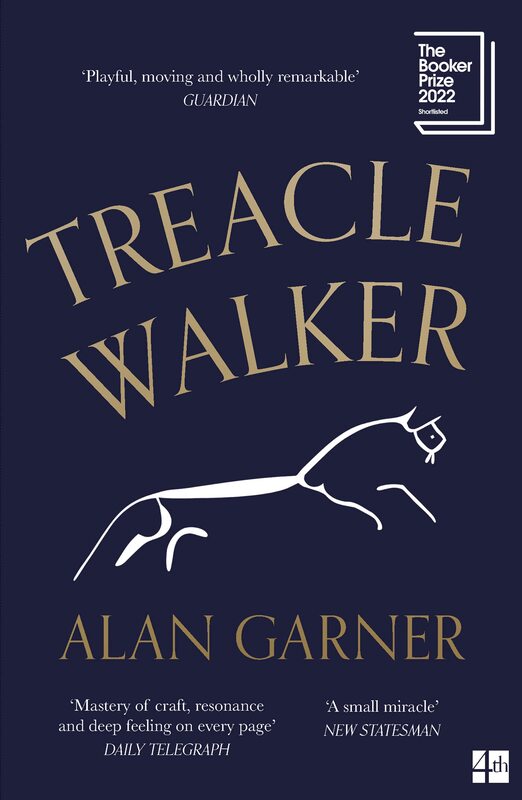Unlike Garner’s previous works, such as The Weirdstone of Brisingamen and The Owl Service, this is not a book where magic comes into the ordinary world. Rather, it’s one where there is no distinction between magic and the ordinary world. Events take place on a heightened plane, where colossal forces are at work just out of sight, and the rules of time and space we know no longer apply. Much of what’s going on is symbolic, following the logic of dreams and myths.
Though the prose is clear and readable, Garner makes heavy use of dialect and archaic terms that may trip some readers up. Treacle Walker in particular speaks in a complex mixture of riddles, old-fashioned slang, and aphorisms, which Joe amusingly finds irritating. Patience and curiosity are essential tools for navigating this maze of references, as well as a willingness to accept that you might not understand everything immediately. However, these qualities will be rewarded with a rich and memorable reading experience.
A central theme of the novel – arguably the central theme – is time. The epigraph, from the Italian theoretical physicist Carlo Rovelli, reads ‘Time is ignorance’, and Garner has spoken in interviews about how theoretical physics influenced the story. It presents a world where ‘time collapses, and the whole thing takes place in no time – or, rather, not in time as we see it’¹, exploring the idea that time is malleable, and our perception of it is limited. In many ways, it’s a lament for the ways that our lives are limited by time, and an expression of the desire to escape it.
Treacle Walker has recently been shortlisted for the Booker Prize, and would be a thoroughly deserving win. Alan Garner has created something truly unique, an experimental work that draws on a lifetime’s knowledge and experience. Though a short read at only 160 pages, it nevertheless manages to be as absorbing as anything longer. If this is to be his last novel, it will be a fitting swansong in a remarkable career and life.
Review by Charlie Alcock
¹ Link

 RSS Feed
RSS Feed
